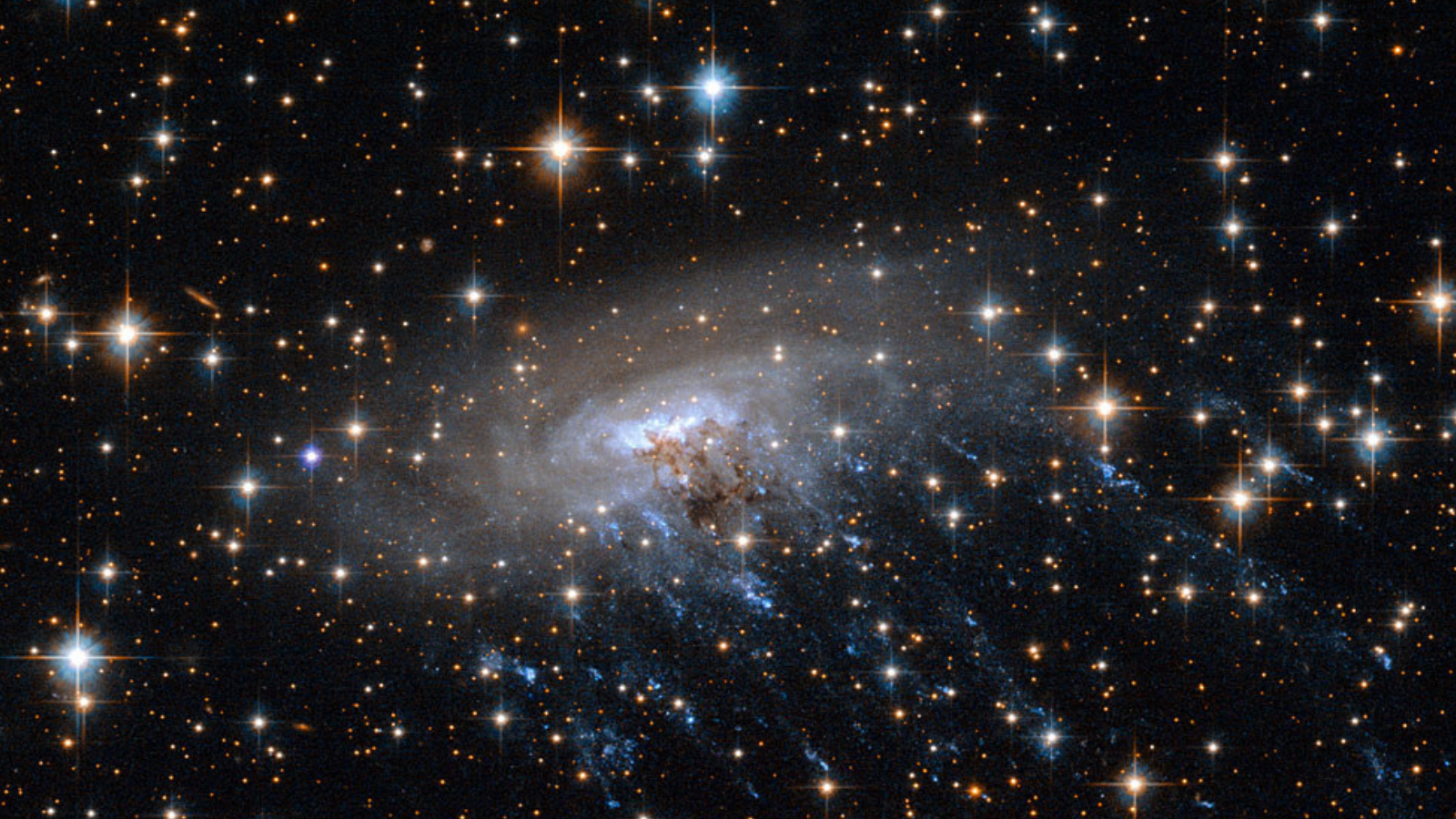Kirk or Picard? We Asked the 'Star Trek: Discovery' Stars Some Classic Questions
Breaking space news, the latest updates on rocket launches, skywatching events and more!
You are now subscribed
Your newsletter sign-up was successful
Want to add more newsletters?

Delivered daily
Daily Newsletter
Breaking space news, the latest updates on rocket launches, skywatching events and more!

Once a month
Watch This Space
Sign up to our monthly entertainment newsletter to keep up with all our coverage of the latest sci-fi and space movies, tv shows, games and books.

Once a week
Night Sky This Week
Discover this week's must-see night sky events, moon phases, and stunning astrophotos. Sign up for our skywatching newsletter and explore the universe with us!

Twice a month
Strange New Words
Space.com's Sci-Fi Reader's Club. Read a sci-fi short story every month and join a virtual community of fellow science fiction fans!
LOS ANGELES — Who was the better "Star Trek" captain: Jean-Luc Picard or James T. Kirk? Or were they both beat by Kathryn Janeway?
Space.com posed this classic Trek question to some of the stars and creators of the newest Trek TV series, "Star Trek: Discovery," at the show's premiere here Tuesday (Sept. 19). We also talked with some of the stars of previous "Star Trek" TV shows — including James T. Kirk himself, William Shatner! (You'll never guess who his favorite captain is.)
You can see their answers to that question and others in the videos below. We also asked the cast and creators what piece of Trek technology they'd most like to have in their real lives, why "Star Trek" has lasted so long and why it is still relevant today, and what their biggest "Star Trek" nerd-out moment was while filming the new series. [The Best "Star Trek" Captains from Worst to Best]
The first episode of "Star Trek: Discovery" premieres on CBS this Sunday (Sept. 24). Subsequent episodes will be available exclusively on CBS All Access, the network's online subscription streaming platform. Plans start at $5.99 per month.
What was your biggest "Star Trek" nerd-out moment?
The original "Star Trek" TV show debuted in 1966, and five more live-action Trek shows (including "Discovery"), along with 13 feature films, have followed it. Many of the new show's cast members and creators are longtime "Star Trek" fans, so we asked them about their biggest nerd-out moments while working on the new series.
"There's a scene early on … where I had a communicator and a phaser in my hand at the same time, and I opened the communicator, and I said, 'Energize!'" said Anthony Rapp, who plays Lt. Paul Stamets. "That was, like, super nerd trippy for me to do."
Sonequa Martin-Green — who playsFirst Officer Michael Burnham, the lead character in the new show — said her nerd-out moment came immediately before being interviewed by Space.com, when she met Nichelle Nichols, who played Lt. Uhura on the original "Star Trek" TV series, for the first time.
Breaking space news, the latest updates on rocket launches, skywatching events and more!
"I'm not going to top that," Martin-Green said of the encounter.
Why has "Star Trek" lasted so long?
When we asked the cast and creators of "Star Trek: Discovery" why the franchise has lasted so long, they agreed on at least one reason: It delivers a message of hope and optimism for the future of humanity.
"I feel like that [message of hope] is not old-fashioned or nostalgic, we need it in every day and every age," said Gretchen J. Berg, one of the show's executive producers.
"Fifty years ago, Gene Roddenberry envisioned this amazing future in which all races, all species came together on this planet and on other planets to make a better universe," Alex Kurtzman, one of the co-creators and executive producers of the new show, told Space.com.
And Martin-Green added, "[Star Trek] gives us a vision, and when you visualize something, you can actualize it."
Which piece of Trek tech do you want to take home?
What "Star Trek" technology would be the most helpful to have in the real world? Among the show's cast and creators we spoke with, the transporter was by far the most popular choice.
"Who doesn't want to just show up in Paris in 5 seconds?" actor Wilson Cruz, who plays Dr. Hugh Culber on the new show, told Space.com.
But there were a few people who had different choices for the piece of Trek tech they wish they could bring home.
"I'd have to have the replicator, because I love food," said Shazad Latif, who plays Lieutenant Tyler.
Follow Calla Cofield @callacofield. Follow us @Spacedotcom, Facebook and Google+. Original article on Space.com.

Calla Cofield joined Space.com's crew in October 2014. She enjoys writing about black holes, exploding stars, ripples in space-time, science in comic books, and all the mysteries of the cosmos. Prior to joining Space.com Calla worked as a freelance writer, with her work appearing in APS News, Symmetry magazine, Scientific American, Nature News, Physics World, and others. From 2010 to 2014 she was a producer for The Physics Central Podcast. Previously, Calla worked at the American Museum of Natural History in New York City (hands down the best office building ever) and SLAC National Accelerator Laboratory in California. Calla studied physics at the University of Massachusetts, Amherst and is originally from Sandy, Utah. In 2018, Calla left Space.com to join NASA's Jet Propulsion Laboratory media team where she oversees astronomy, physics, exoplanets and the Cold Atom Lab mission. She has been underground at three of the largest particle accelerators in the world and would really like to know what the heck dark matter is. Contact Calla via: E-Mail – Twitter
